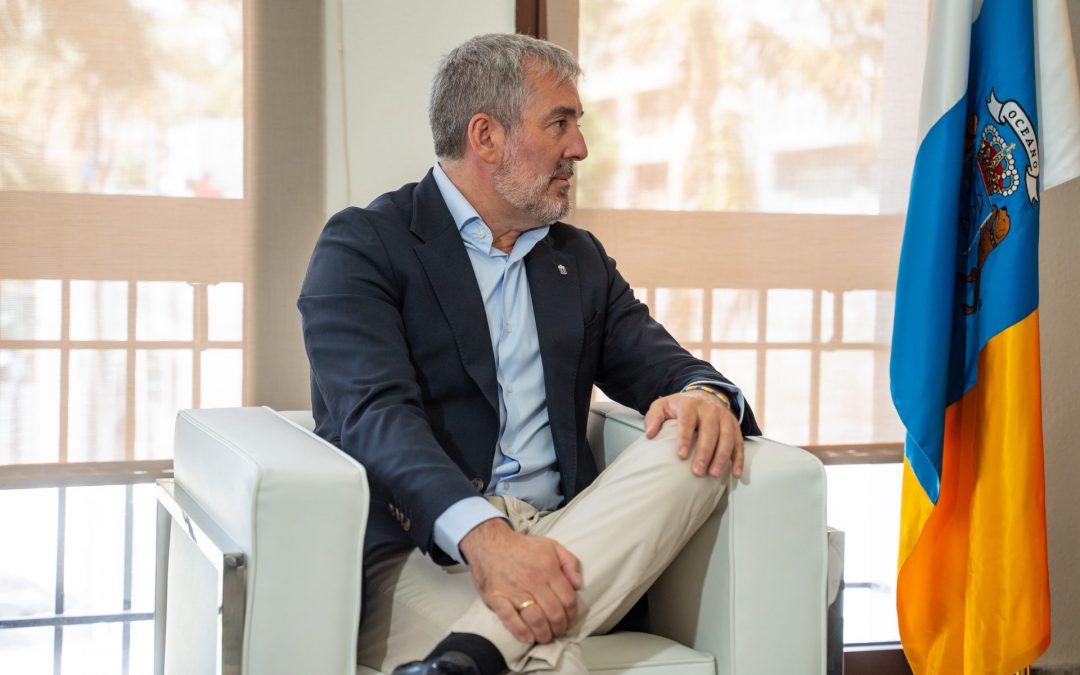European islands join the strategy driven by the Canary Islands for Brussels to activate and finance measures in favor of sustainable tourism development.
As detailed in a press conference by the spokesperson of the Canary Islands Government, Alfonso Cabello, following the Government Council, the document prepared by the regional Government already has the support of the Commission of Islands, so the leadership of the Conference of Peripheral and Maritime Regions (CPMR) has sent it to all involved territories for them to enrich it and be approved in October.
From now until September 13, the regions that make up the Commission of Islands will be able to submit their amendments to the text ‘A New Vision for Sustainable Tourism in the Islands’ based on the one presented by the Canary Islands Government.
These contributions will help refine a final proposal to be debated in the plenary session of the Commission of Islands during the Conference of Regions summit scheduled for October 3 in Gozo (Malta).
The objective of this open consultation process following the “firm support” of the Commission of Islands presidency—held by the Azores—is to achieve “a common, solid, and concise political position as a basis for future debates and promotional actions at the EU level,” explains the letter sent by the CPMR to the remote and island territories of the EU.
From there and after its likely approval, the proposal from the Commission of Islands will be submitted to the European Commission and the European Parliament.
In this regard, the document led by the Canary Islands asks the States and the European Commission to “jointly work with their island territories to develop adapted sustainable tourism development plans and provide adequate funding to achieve these objectives.”
The strategy that the Canary Islands has put on the table urges the EU to “address multiple aspects from an island perspective, including some factors related to sustainable tourism in island territories,” through “land planning, resource management, measures related to housing, transport policies, environmental conservation, and energy production,” among others.
The text will reach the hands of the community Executive just at the beginning of the new legislature, when the European commissioners are settling into their positions and the European Parliament is already working at full capacity.
The President of the European Commission, Ursula von der Leyen—re-elected last July 25—has already requested by letter that the States communicate the names of their candidates for commissioners before August 30, with the aim of forming the Commission at the beginning of autumn.
The document that the Canary Islands has submitted to the Commission of Islands to achieve sustainable tourism development has its origin in the plenary session of the Commission of Islands of the CPMR held last April in the Azores.
At that time, the regional Government committed to draft this proposal and present it as the basis of an EU strategy aimed at sustainable tourism development in the islands.
Shortly after, last June 20, already with a text in hand, the President of the Canary Islands Government, Fernando Clavijo, gained the support of the Secretary General of the Conference of Peripheral and Maritime Regions (CPMR), Eleni Marianou, for this document.
In parallel and to reinforce this line of work, the Canary Islands already have the approval of their territorial partners to host the general assembly of the Commission of Islands of the Conference of Outermost and Maritime Regions of the European Union.
The annual summit of the EU’s island and remote territories will be held in the first half of March of next year in Lanzarote.
This was confirmed by letter in May by the President of the Commission of Islands Conference of Peripheral and Maritime Regions, José Manuel Bolieiro, to the President of the Canary Islands, Fernando Clavijo, accepting the invitation that the regional Government extended to him during the working sessions held last April in Punta Delgado.
The CPMR, founded in 1973, represents 160 regions from 25 member and non-member states of the EU, territories that collectively have more than 200 million inhabitants. In Brussels, this organization plays a key role as a counterbalance to the central territories of Europe.
Within this Conference, the Commission of Islands is one of the six geographic groups.
Among its members are nineteen European territories located in the Mediterranean, the Baltic Sea, and the Atlantic, Indian, and Pacific Oceans that collectively represent a total population of around 15 million citizens, according to the Government.
 go to the original language article
go to the original language article
